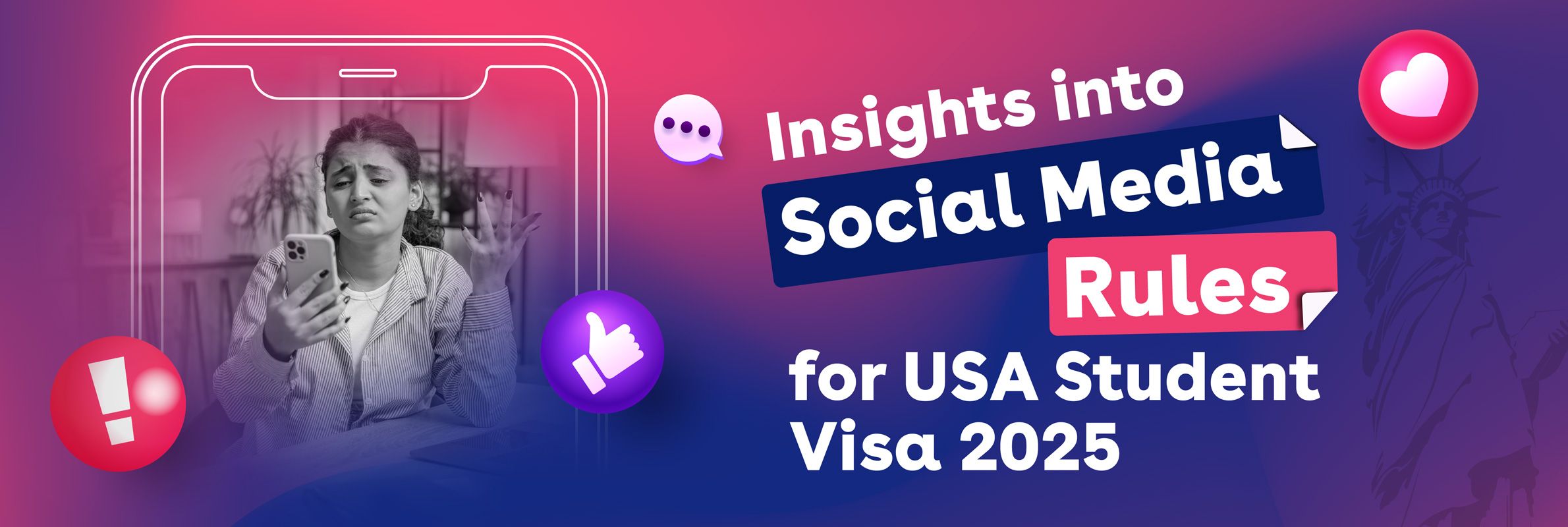After a month-long pause, international students can finally breathe easier as the U.S. is once again issuing USA Student Visas - covering F, M, and J categories. But the return of services comes with a new twist, which is mandatory social media screening. Yes, that means consular officers now expect access to your Facebook, X (Twitter), Instagram, and more, reviewing up to five years of your online activity.
No need to hit the panic button! Your dream of studying in America doesn’t have to be derailed. This blog will walk you through exactly what the rule means, what consular officers are looking for, and how you can prepare your online presence before applying for your USA Student Visa. Let’s dive in and keep your ambitions on track.
